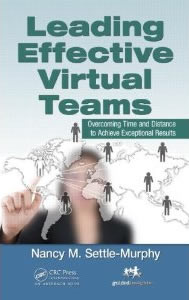My twin daughters graduated from high school three days ago, which should really be a time of great celebration. To retain my sanity, I’ve been keeping busy with necessary distractions like planning their party, gearing up for our summer vacation (possibly, one of our last together!), and (thankfully) a barrage of client work. But every so often, the realization that they will be flying the coop in less than three months hits me upside the head, and for that moment, I become a wreck. I’m excited for them about the adventures that lie ahead. I really am. But I’m also feeling wistful and sad that our little tribe of three is breaking up, with all of us going in different directions, after so many years as a small but mighty team.
My friends and family assure me that this represents a new beginning for me, too. Said one: “This is your time to check off your bucket list as a human being, independent of your kids.” I suppose that’s true, which means I actually need to start a bucket list, which is just half-formed.
This time also represents a new beginning for all of us, but it also represents a letting go of many things, too. For my kids, this marks the ends of their childhoods (which technically happened when they turned 18 six months ago, but still….), their innocence (which is still remarkably intact, as far as I know!), their reliance on me (right now the pluses seem to outweigh the minuses), and their devotion to each other, despite the daily squabbles. For me, this rite of passage means that I will no longer be playing an active role in my kids’ day-to-day care giving, which has occupied so much of my time, thought, and energy over the better part of the last two decades.
Lately I have found myself asking: What am I learning from this time of my own difficult transition that I can apply to the teams I work with? How can other teams cope with a tough break-up? How can we all learn to say goodbye gracefully when the time has come and learn to embrace the uncertain journey ahead? Here are just some of my thoughts. I’d love to hear yours, too.
- Create a happy ending for yourself. Make this a time of celebrating all that you’ve done together – the special milestones and accomplishments you’ve achieved together, the way you’ve lifted each other up and stuck together through tough times, and all of the fun you’ve had along the way. Regard this time as a natural, necessary conclusion to a significant, hard-won milestone, whether it’s a high school graduation or the successful completion of a challenging and rewarding project. Take the time to reflect on all that you have done to get to this happy ending, both together and individually, rather than dwelling inordinately on times that have already passed.
- Look back fondly, but not too long. Take some time to remember what you most loved about your time together, what you appreciated about each other, gave to each other and learned from each other. Think about what qualities and attributes of team members made your time together so special, and seek them out in others you work with or spend time with. (On the other hand, injecting a dose of reality by recalling your teammates’ less-than-stellar attributes and qualities of others may help temper any feelings of loss.) Allow yourself to savor both the bitter and the sweet.
- Hold onto important keepsakes. Put aside for safekeeping a few well-chosen artifacts that represent the tangible manifestations of your achievements or special times you shared, which will put a smile on your face as you retrieve them every so often. You can create a digital library of these mementos if you’re tight on space. Remember that excellence award your team won or the photo that perfectly everyone the goofiness of everyone on the ream? Don’t be so quick to toss them out. (Note to self: I must weed through the dozens of cartons of art projects, papers, report cards, etc., into a manageable collection. But that’s for another day.)
- Define a new role for yourself and own it. Over the last 18+ years, I’ve played many roles: business owner, facilitator, consultant, sister, friend, writer and community volunteer, to name a few. By far the most important and most cherished role of all has been that of mother, adviser, protector and caregiver to my girls. As my daughters begin to navigate their own paths through life, my caregiver role will occupy a lot less active time, so I will need to figure out what roles I will take on my new journey ahead. If you’ve been playing a particular role on your team until now, this can be a great time to do a reset, allowing you to take on new role that positions you to capitalize on new opportunities. Just because you’ve played the role of financial analyst in the past, for example, doesn’t mean you can’t be an account manager in the future. Now could be the perfect time to make a shift.
- Formalize the start of something new. If you’re joining a new team, find ways to become excited about the new opportunities for personal growth that lie ahead. Reflect on everything you have to gain from this new start, and make a plan for reaping the benefits. Making new connections, forging new relationships and learning new things all will be especially important. If you’re experiencing a major life milestone, take this opportunity to visit places you’ve never been, learn skills you always wished you had time for, or meet people who can nourish your soul, spirit or intellect.
- Stay connected. Saying goodbye doesn’t have to mean you’re closing a door. But it does take time and energy to maintain connections with those whose company you miss, especially if they’re outside of your line of sight. If you’re lucky enough to live within driving distance, make plans to share a meal every now and then. If not, make a call or open a video chat. Simply texting doesn’t do the trick. (Note to my daughters if they’re reading this.) My need to connect with my kids may be far greater than theirs, especially at the start of their new lives, so I will remind myself to set my expectations accordingly. The same goes for teams. Some of your colleagues may value staying in close touch, while others may prefer to focus on making new connections. Get a sense for what you need from them, and what they need from you, and adjust as you go along.
If you find yourself on the precipice of a new beginning of some sort, even though it may also mean the loss of something you’ve really loved, think of ways you can take advantage of new opportunities that weren’t available before. Create a concrete plan ahead of time, even if it’s just a few baby steps. To paraphrase the first law of wing-walking: Don’t let go of one wing until you’ve firmly grabbed onto the next one. Better yet – grab that new wing first and before letting the other one go, gently.
Links
Past Communiques:
Maintaining momentum when team members come and go
Tips for building trusting relationships across virtual teams
Adapting to a new culture takes curiosity, humility and patience
White paper by Guided Insights:
Planning and Leading Lessons Learned Reviews in a Virtual World
Articles:
Psychology Today article: Keys to Handling Life’s Transitions




